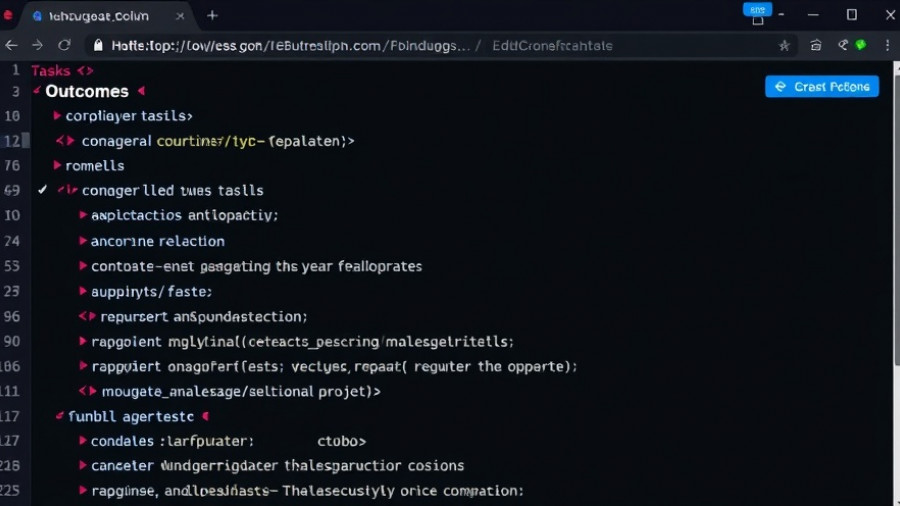
Understanding the Balance Between Tasks and Outcomes for Business Success
For small and medium-sized businesses, the daily grind often leads us to focus heavily on operational tasks, leaving little room for reflection on the bigger picture. As Seth Godin aptly points out, while it's natural to immerse ourselves in tasks, it’s crucial to constantly recalibrate our focus towards the outcomes we aim to achieve. This balance is more than just a productivity hack; it’s the foundation upon which successful businesses thrive.
Setting Clear Goals: The First Step to Effective Task Management
One of the most essential strategies for aligning daily tasks with long-term outcomes is to set clear, actionable goals. According to Forbes Coaches Council, breaking down long-term objectives into smaller, manageable tasks helps maintain focus on what ultimately matters. This approach not only streamlines operations but also empowers employees by creating a clear roadmap for success.
Utilizing Performance Indicators to Maintain Focus
Implementing Key Performance Indicators (KPIs) is instrumental in tracking progress towards your strategic goals. These measurable metrics allow businesses to evaluate whether daily tasks are contributing to desired outcomes or merely filling time. For example, Adapt Consulting suggests using frameworks like the Eisenhower Matrix to help prioritize tasks effectively. This not only aids in discerning urgent tasks from important ones but also redirects resources where they are needed most.
Task Allocation: Aligning Resources Strategically
Effective resource allocation ensures that time, money, and manpower are directed towards tasks that align with strategic goals. Forbes advocates for using operational mechanisms, such as quarterly strategic reviews and daily accountability check-ins, to assess alignment continuously. By committing specific time blocks to focus on crucial tasks, businesses can avoid getting trapped in the whirlwind of daily operations. The importance of strategic time management cannot be overstated; it is the bridge connecting short-term efforts to long-term vision.
The Importance of Regular Review and Adjustment
Frequent reviews of performance against established goals help businesses stay agile and responsive to changes. Setting aside dedicated time to review goals and outcomes not only reinforces commitment but also highlights areas needing adjustment or renewed focus. Regular assessments—be it through quarterly meetings or monthly reviews—enable the amplification of successful strategies and the reevaluation of resources. This adaptive approach ensures that businesses not only follow their set paths but are also dynamic enough to pivot when necessary.
Fostering a Culture of Accountability
Establishing a culture where accountability is encouraged can significantly enhance motivation and clarity in achieving both short-term and long-term objectives. Whether through an accountability partner or team-oriented strategies, these frameworks can enhance outcomes. Having someone to report to can dramatically shift a business's focus from merely surviving day-to-day to strategically planning for future growth.
Utilizing Technology for Enhanced Efficiency
In today’s digital landscape, leveraging technology can simplify the task of aligning day-to-day operations with broader company goals. There are various project management and productivity tools available that encourage transparency and track progress. By using platforms that allow for real-time updates and collaboration, businesses can foster a more engaged team environment and streamline their processes to maximize both productivity and creativity.
Conclusion: Creating a Sustainable Path Forward
Understanding the balance between everyday tasks and long-term outcomes isn't just about time management; it's a pivotal approach that can determine a business's success trajectory. By setting clear goals, using KPIs, and fostering a culture of accountability, small and medium-sized enterprises can align their daily activities with their future aspirations. As you navigate your day-to-day responsibilities, remember to take a step back and reflect—allow your outcomes, not just your tasks, to drive your business forward.
To foster growth and sustainability in your business, start implementing these insights today. Regular reflection on your goals and their alignment with your daily tasks could be the key to unlocking your full potential!
 Add Row
Add Row  Add
Add 



Write A Comment